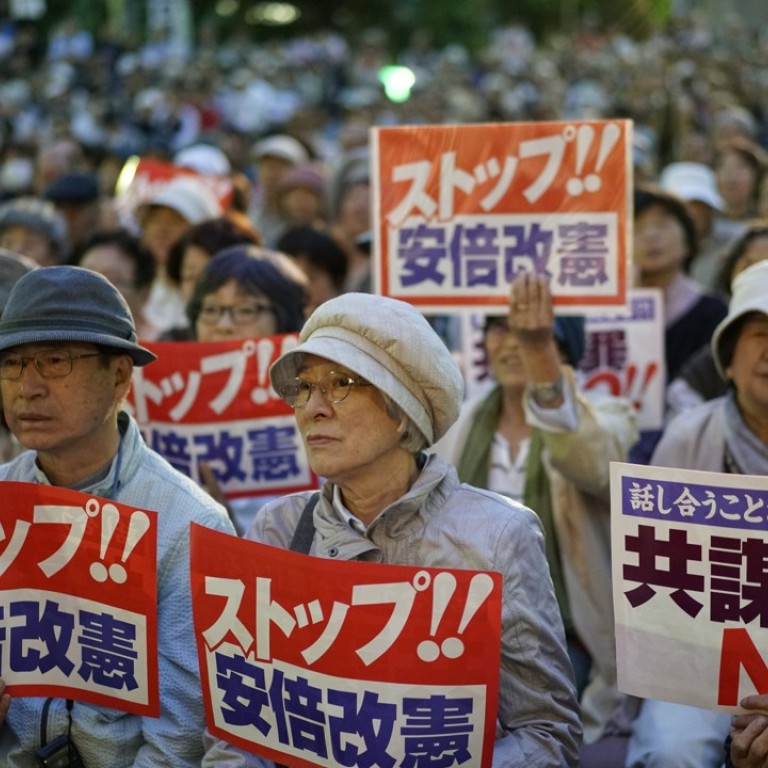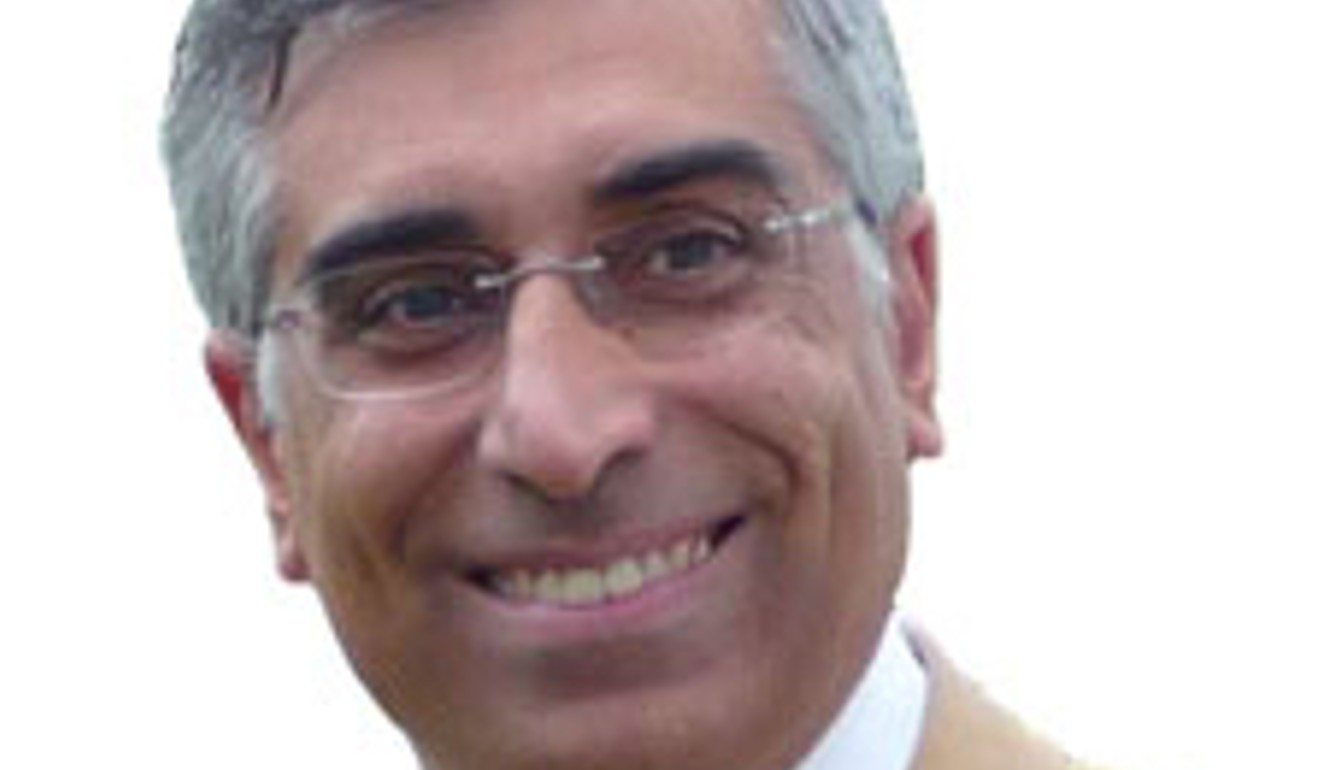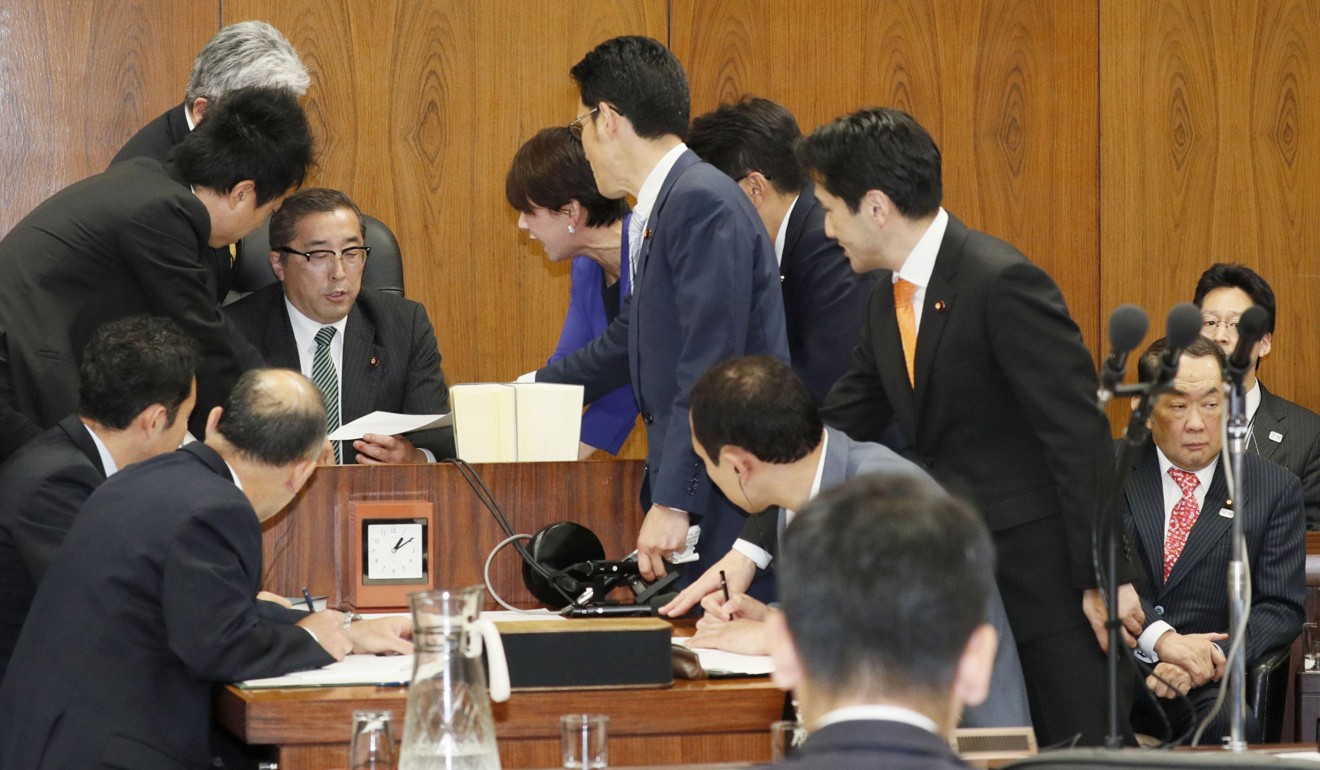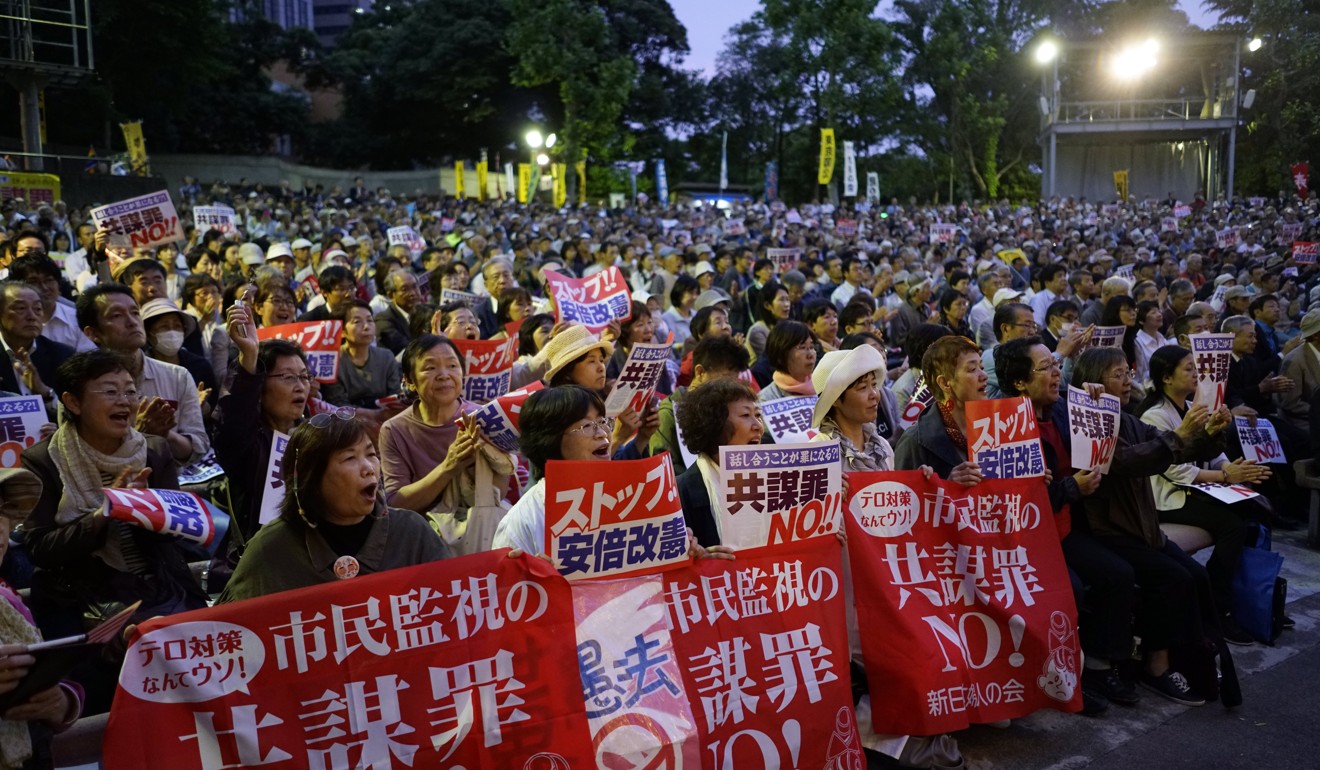
Japan’s bid to make 2020 Tokyo Games safer sparks fears of excessive state surveillance
Concerns that planned legislation targeting conspiracies to commit terrorism and other crimes could allow police to trample civil liberties
The United Nations has weighed in on the Japanese government’s passage of controversial anti-conspiracy legislation, which critics have charged could be used to violate freedom of expression and the right to privacy.
Joseph Cannataci, a UN special rapporteur on the right to privacy, sent a letter to Prime Minister Shinzo Abe immediately before the House of Representatives Committee on Judicial Affairs passed the bill on Friday afternoon.
Japan’s parliament is expected to approve the bill as early as Tuesday, setting the stage for enactment.
The government says the legal changes are needed to ratify a UN treaty aimed at battling international organised crime and fighting terrorism, as Tokyo prepares to host the 2020 Olympics.
However Cannataci said the legislation could “lead to undue restrictions on the rights to privacy and the freedom of expression”.

He also criticised the government for rushing the debate through parliamentary hearings, claiming “the allegedly expedited process used to push the draft law may have a detrimental impact on human rights since he fast-tracking of legislative procedures unduly limit broader public debate.”
Japan on Monday protested against the letter, which was released on the website of the Office of the UN High Commissioner for Human Rights. Japan’s Chief Cabinet Secretary Yoshihide Suga called it “clearly inappropriate and we strongly protested”.
“It is not at all the case that the legislation would be implemented arbitrarily so as to inappropriately restrict the right to privacy and freedom of speech,” he added, reiterating that Japan needed the legislation to ratify the UN treaty.

Cannataci’s concerns echo those of many Japanese, with critics of the government accusing it of steamrollering the legislation through the house - where the government has a large majority - by setting a 30-hour time limit on deliberations. Abe has also made it clear that he expects the bill to be enacted into law by the time the house goes into recess for the summer.
There were protests on Friday and over the weekend outside the Diet, with demonstrations also reported in Aichi, Gifu and Mie prefectures. The protest in Nagoya was joined by lawyers and activists, with the biggest concern over increased surveillance of citizens.

Some may consider it to be intrusive, but in truth Japan is playing catch up to similar legislation that has already been put into action in the US, the UK and other parts of the world
With the Tokyo Olympic Games just over three years away, there is genuine alarm that radicals could target the event with some form of terrorist attack.
The new legislation, when it goes into law, will make 277 offences in the planning stages subject to conspiracy charges and give the authorities here substantial new powers, such as wiretapping and surveillance of suspects.
Yet Stephen Nagy, a senior associate professor of politics at Tokyo’s International Christian University, argues that Japan is merely playing catch-up to legislation that has already been passed elsewhere and needs to be able to cooperate with its allies on cross-border crime and terrorism.
“The bill is primarily about being able to work with other countries to combat terrorism and to identify individuals and groups that might be planning to carry out such attacks and, with the Olympics coming up, Japan is right to be taking steps that will help it do just that,” he said.
“Some may consider it to be intrusive, but in truth Japan is playing catch up to similar legislation that has already been put into action in the US, the UK and other parts of the world. The authorities here need to have this capability.”
Nevertheless, the public is clearly uneasy about the changes that are close to being enacted, with 63 per cent of people replying to an Asahi survey saying they do not know the details of the legislation and 64 per cent opposing its enactment. Fully 78 per cent said the government had not done enough to explain the details of the bill.
Those figures have translated into falling pubic support for the prime minister. The approval rating for his government has fallen by more than 3 percentage points since April and presently stands at 55.4 per cent.
Additional reporting by Reuters

